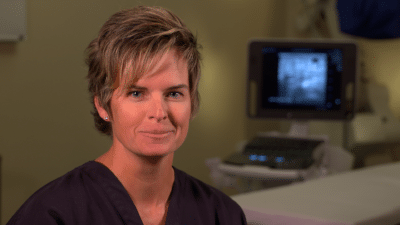Common Symptoms of CVI – Should you be concerned?

The concern about having or developing Chronic Venous Insufficiency (CVI) is a great reason to have your varicose veins fully assessed by a qualified Vein Specialist.
Why should I be concerned about the symptoms of Chronic Veins Insufficiency?
Chronic Venous Insufficiency, also known as Venous Reflux Disease or Venous Stasis, refers to a condition of inadequate blood flow from the legs back to the heart. In healthy veins, blood pressure and muscle movement move blood out of the legs and upwards; one-way valves prevent back-flow of blood between heart beats. When those valves become weak, veins become distended and blood pools in the lower legs. This can lead to Chronic Venous Insufficiency. While CVI is not usually lethal, its symptoms can significantly diminish your quality of life.
What are the most common symptoms of Chronic Venous Insufficiency?
If you experience any of these symptoms, consider getting a full vascular health evaluation from a qualified Vein Specialist to determine what can be done to improve your quality of life.
- Varicose and spider veins
- Swelling of the legs and ankles
- Skin color changes over the legs and ankles
- Sores on the legs (ulcers), especially those that are slow to heal
- Aching legs
- Heavy legs
- Burning, throbbing in the legs
- Muscle cramps
- Leg fatigue
- Bleeding veins
- Itching over veins
- Restless legs
- Leg pain after sitting or standing long periods
Who is at risk of developing the symptoms of Chronic Venous Insufficiency?
There are a number of reasons that venous valves become weaker, and family history tops the list. If other members of your family have CVI, you have a much higher chance of developing this condition. Other factors include:
- Age. Vessel walls get weaker over time.
- Hormonal factors. Hormonal imbalances and fluctuations affect vessel wall integrity.
- Pregnancy. Hormonal fluctuations and the physical pressures of pregnancy are both factors.
- Trauma and other injury to the legs. Scar tissue can also impair blood flow.
- Deep Vein Thrombosis. These are clots that form in the deep venous system and impede blood flow.
There are lifestyle factors, as well, that can increase your chances of developing CVI. Any repeated activity (or inactivity) that impedes or slows blood movement in the body will impair your vascular health, including:
- Standing or sitting for long periods. Gravity can take a toll, and blood moves better when the body is moving.
- Obesity. It takes a lot of physical resources to support increased fat tissue.
- Smoking. Not only does smoking decrease the amount of oxygen that is taken in by the body, its long-term effects include a buildup of plaque and decreased flexibility in the vessel walls.
- Hypertension. High blood pressure can also contribute to a decrease in blood vessel wall flexibility.
- Lack of physical activity. Blood moves better when the body is moving.
Treatment for the symptoms
While there is no cure, there are a number of minimally invasive procedures available that will improve vascular sufficiency, and provide relief from CVI symptoms. Read more about them by clicking on the links.
- Medical Adhesive (Veneseal Closure System)
- Laser Treatment (Endovenous Laser Treatment (EVLT)
- Radio Frequency Ablation (ClosureFast Radiofrequency Procedure)
- Liquid Sclerotherapy and Compression (chemical injection)
A board certified Vein Specialist can provide you with a full vascular exam and Duplex Ultrasound.These tools will measure the blood flow returning to the heart, assess your overall vein health, and allow for the creation of a treatment plan tailored to your specific needs.
Entrevista con el Dr. Rose Durante nuestras entrevistas en video con Jilanne Rose le pedimos que nos contara algunas historias sobre sus experiencias en el tratamiento de las varices a lo largo de los años. Esta historia se trata de un paciente que se había despojado de las venas realizadas hace años y tenía miedo…
Read MoreDr. Rose Interview During our video interviews with Jilanne Rose we asked her to tell us some stories about her experiences in Varicose Veins Treatment over the years. This story is about a patient who had vein stripping performed years ago and was afraid of going through the process again because of the pain she…
Read MorePregunta: ¿puede usted conseguir congestión pélvica cuando usted nunca ha estado embarazado, y puede interferir con flujo de la orina?
Read MoreQuestion: Can you get pelvic congestion when you have never been pregnant, and can it interfere with urine flow? Answer: Pelvic congestion syndrome, although uncommon, can occur in women who have not been pregnant. These varicose veins in the lower abdomen typically do not cause problems with urination. Best to be evaluated by a gynecologist…
Read MorePregunta: tengo dolor y venas de araña apareciendo sobre todo en la zona del muslo después de mi ablación que fue hace 2 meses. GSV cerrado y SSV bien. Estoy usando 20-30 mmHG medias de rodilla-alta todos los días. ¿Cuál es la causa?
Read MorePregunta: tuve tratamiento de la escleroterapia de la espuma para la vena varicosa hace 2 meses por una técnica llamada catéter de flebogrif y leí que puede causar complicaciones como el movimiento. ¿Sigue siendo probable el riesgo? ¿Y qué sucede con la sustancia química usada en la espuma después de la inyección, permanece en el…
Read MoreQuestion: I had foam sclerotherapy treatment for varicose vein 2 months ago by a technique called flebogrif catheter and I read that it may cause complications like stroke. Is the risk still probable? And what happens to the chemical substance used on the foam after the injection, does it remain in the blood stream and…
Read MoreQuestion: I have pain and spider veins popping up mostly in the thigh area after my ablation which was 2 months ago. GSV closed and SSV ok. I am wearing 20-30 mmHG knee-high stockings every day. What is the cause?
Read MorePregunta: ¿Cuánto tiempo toma la cirugía de la vena varicosa en sí misma y cuánto hora debo esperar para la recuperación?
Read MorePregunta: ¿Qué puede decirme un examen de reflujo venoso? ¿Cómo mide el tratamiento la efectividad de mis venas?
Read More
